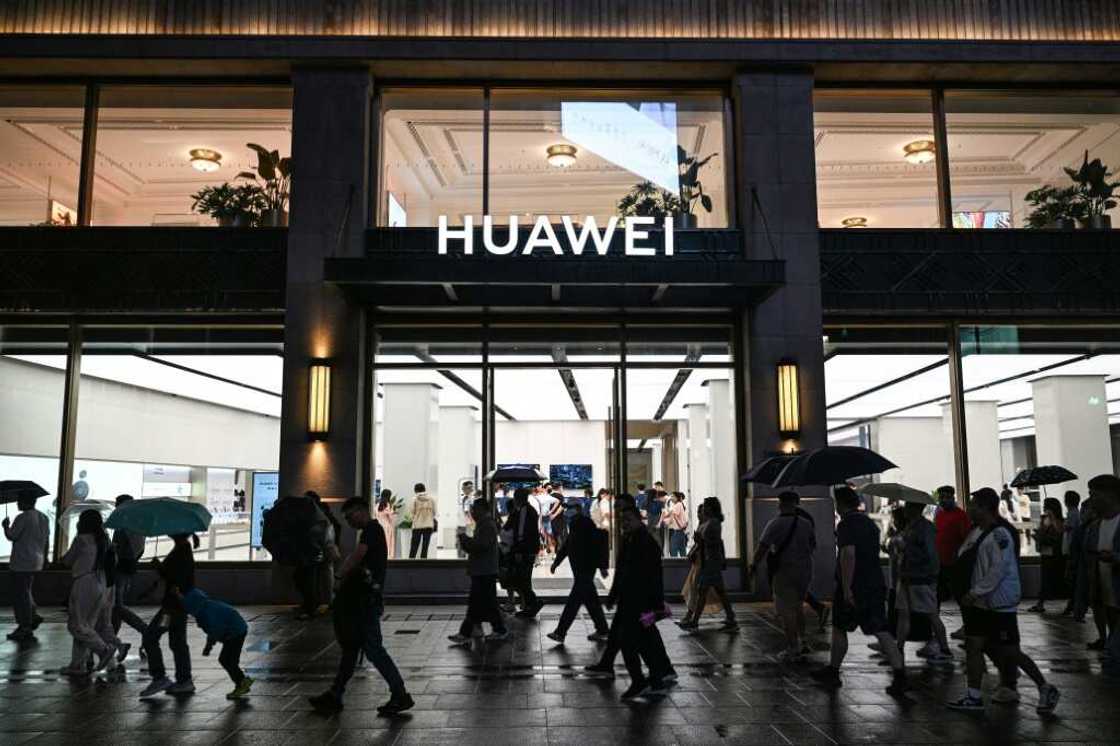Germany to ban Chinese telecom giants from 5G network

Source: AFP
Germany said Thursday it will phase out the use of components from Chinese telecom giants Huawei and ZTE in its 5G networks in the coming years due to national security concerns.
It was the latest move by Berlin to reduce economic reliance on Beijing that some fear have left it vulnerable, and follows warnings from the EU that the firms pose a risk to the bloc.
Parts from Huawei and ZTE will no longer be used in "core" 5G mobile networks by the end of 2026 at the latest, the interior ministry in Berlin said.
In 5G access and transmission infrastructure, the systems of the telecom firms must be replaced by the end of 2029.
"We are protecting the central nervous systems of Germany as a business location -- and we are protecting the communication of citizens, companies and the state," said Interior Minister Nancy Faeser.
"We must reduce security risks and, unlike in the past, avoid one-sided dependencies."
PAY ATTENTION: Сheck out news that is picked exactly for YOU ➡️ find the “Recommended for you” block on the home page and enjoy!
The ministry said that 5G networks form part of Germany's "critical infrastructure" and are important for the functioning of sectors ranging from health to transport and energy.
Telecoms networks must be protected from cyberattacks, which could be an "existential threat", it added.
Officials have reached agreements with Germany's 5G network operators, Deutsche Telekom, Vodafone and Telefonica, on banning Huawei and ZTE.
Government sources had already indicated in September last year that Berlin was considering such a move, although the dates announced are later than those originally envisaged to give companies time to adopt the new measures.
Faeser would not be drawn on whether she feared retaliatory measures from China, although she said that Beijing had been informed about the bans.
"For me as interior minister it is a matter of finding regulations for telecommunications networks, for critical infrastructure, and I have done that," she told a press conference.

Source: AFP
Fraying economic ties
Factors that authorities looked at when deciding on the ban included whether the manufacturer was directly or indirectly controlled by the government, or whether they had been involved in activities that had a detrimental impact on Germany or other EU states.
China and Germany have long had close ties, with Germany's crucial manufacturers -- from auto companies to machine-tool makers -- exporting vast quantities of products to the world's number two economy.
But Russia's invasion of Ukraine and the subsequent energy crisis triggered soul-searching in Europe's top economy about an over-reliance on authoritarian governments and led to Berlin seeking to "de-risk" by cutting its reliance on China.
It unveiled a strategy for managing ties with Beijing last year, in which it sought to strike a balance between competing interests, with China described as a "partner, competitor and systemic rival".
There have been growing signs of the government's new tougher approach.
Last week, Berlin blocked the sale of a gas turbine unit belonging to a subsidiary of the Volkswagen group to a Chinese investor after media reports suggested it had close links to the Chinese armaments industry.
EU countries are becoming increasingly wary of using tech from Huawei or other non-EU vendors that may not comply with EU data protection laws.
The European Commission, the EU's executive arm, last year described Huawei and ZTE as a risk to the bloc and called on EU member states to exclude the companies' equipment from their mobile networks.
After the UK in the summer of 2020, Sweden became the second country in Europe and the first in the EU to explicitly ban Huawei from almost all of the network infrastructure needed to run its 5G mobile network.
There has also been growing pressure from the United States to take action against Huawei amid a technological rivalry between Beijing and Washington over US fears it could be used for Chinese espionage operations.
PAY ATTENTION: Unlock the best of Legit.ng on Pinterest! Subscribe now and get your daily inspiration!
Source: AFP





